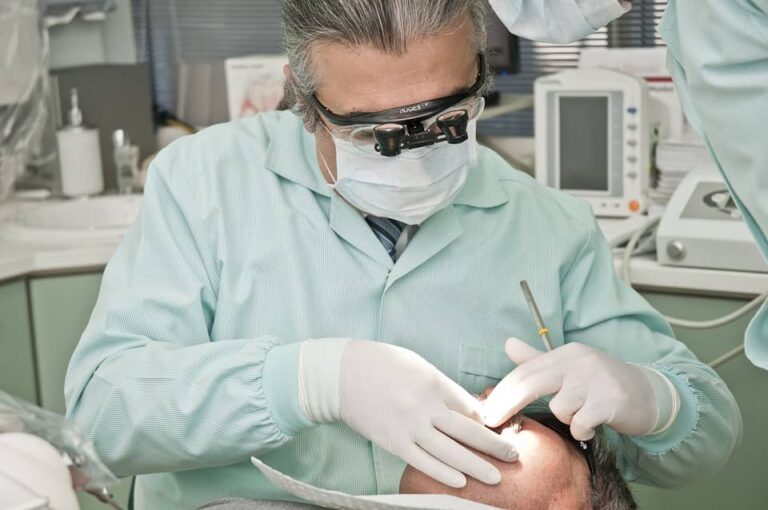Teeth grinding is due to stress, and anxiety. Some medical conditions are also associated with teeth clenching sleeping apnea, epilepsy seizer, and gastroesophageal reflux (GERD). Involuntary continuous muscle hyperactivity can lead to pain in the jaw, facial and neck muscles. Teeth clenching mostly affects oral health such as wear and fractured teeth, breakage, and removal of teeth prostheses, and causes abnormality in the temporomandibular joint.
WHAT ARE THE CAUSES OF TEETH GRINDING?
- Teeth clenching or Bruxism is a habit in which you unconsciously grind or clench your teeth. That can affect your teeth and jaw muscles. It can happen in both situations, awake or sleeping. Teeth grinding in sleeping is common among young children.
- The exact cause of teeth grinding is unknown but may be aggravated due to
- Physiological conditions such as stress, and tension.
- Sleeping teeth grinding is also associated with other medical conditions such as sleeping apnea, ADHD, epilepsy, and Parkinson’s disease.
- Genetics is also a cause of teeth clenching.
WHY DO PEOPLE CLENCHING TEETH IN THEIR SLEEP?
Clenching teeth during sleeping is due to hyperactivity of the mastication muscle (muscles that help in food grinding), the exact cause behind is unknown but some medical literature support that some medicine especially that used to treat hyperactivity disorder ADHD can trigger sleeping teeth grinding.
Some anti-depressant and cessation of chronic pain management medications also show sleeping teeth grinding as withdrawal symptoms. Uses of addictive substances, such as alcohol, heroin, methamphetamine (ice), and nicotine can also cause teeth clenching in sleeping. Control addiction habits and use of low-dose medicine to treat ADHD or alternative medicine for depression according to doctors’ prescription, show improvement and abrupt teeth-clenching habits.
HOW TO TREAT GRINDING TEETH?
The treatment of grinding teeth is to eradicate the cause behind it and treat its complications. Teeth clenching most affects teeth and causes dental, jaw muscles, and joint problems.
Dentists examine your teeth and evaluate the tooth condition then they fabricate a mouth guard to preserve your teeth wear from clenching. In severe conditions when the tooth surface is lost and exposed to the dentine then tooth crowning is also required to avoid sensitivity. Dentists also recommend some jaw exercise to correct your bite and jaw muscle relaxation.
Consult with a psychologist or licensed therapists to treat anxiety and stress-related teeth clenching.
Treatment of underlying medical conditions that lead to teeth grinding such as sleeping apnea, epilepsy, and gastroesophageal reflux disease.
HOW TO STOP TEETH FROM GRINDING IN SLEEP?
- Grinding teeth in sleeping is an involuntary act, the affected individual is also unaware of it. Teeth grinding causes Complications and problems in teeth then this condition is diagnosed such as teeth sensitivity, exposed dentine, Temporomandibular joint TMJ, fracture, and removal of tooth prostheses such as crowns and veneers.
- To stop grinding teeth and preserve teeth structure dentists recommend the use of a mouth guard at bedtime, they are made up of hard acrylic their function is to splint the teeth
- Anxiety and stress management is also good practice to control teeth grinding. Sometimes doctors prescribe muscle relaxants for a short duration to control muscle hyperactivity.
HOW TO STOP GRINDING YOUR TEETH IN SLEEP NATURALLY?
Naturally, teeth grinding can be treated by controlling habitual activities such as controlling jaw muscles movement through exercises and practising correct jaw position in routine activities.
Do meditation and yoga to control your anxiety, anger and stress.
WHEN TO SEE A DENTIST?
Teeth grinding especially in sleeping is difficult to diagnose. It is mostly diagnosed when a complication arises due to teeth clenching such as teeth sensitivity, pain, facial muscles pain, or during a normal dental routine.
Sleeping teeth clenching can cause tooth wear, flatten the teeth surfaces, and produce tooth fractures that cause tooth sensitivity and pain.
Jaw pain, difficulty in opening and closing mouth, clenching sound produced during jaw opening.
Stiffness and pain in the neck and facial muscles around the ear due to hyperactivity muscles.
Teeth grinding produces sound due to teeth grinding that disturbs your sleeping and your sleeping partner.
Any of these symptoms you find then you should visit your dentist so the dentist can examine your teeth and evaluate your jaw muscles’ stiffness and treat them accordingly. If you are looking for a dentist in Five Dock click here to make an appointment.
Conclusion
Mild teeth clenching does not require any treatment and can be treated through exercise and stress management. Severe teeth clenching can lead to complications of jaw joints and muscles, damaged teeth, and headaches. A regular dental visit can diagnose it early and prevent complications.


